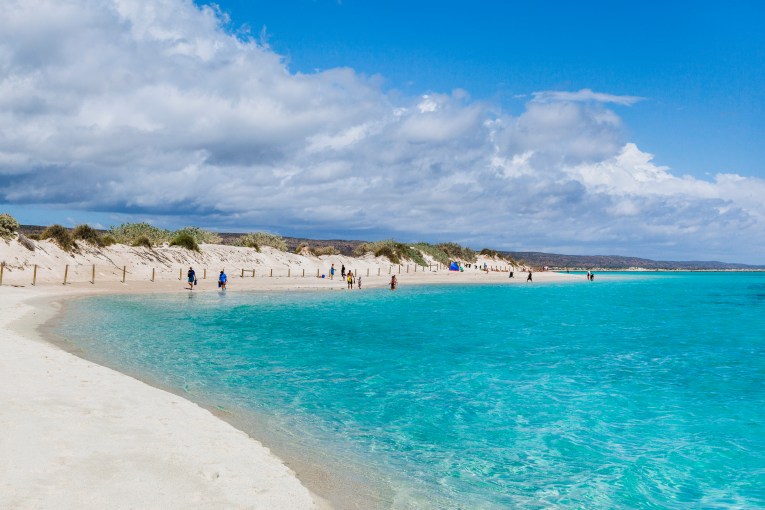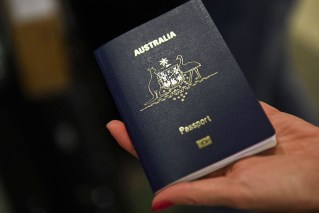Trading places: France


Janeen Sonsie has dreamt of living in France since her early 20s. Last year, the 58-year-old motivational speaker from Melbourne “said stuff it”, “packed up everything”, sold her house, and left Australia to seek out a new life thousands of kilometres away.
Finding herself at Nice on the French Riviera, Ms Sonsie spent three months at a language school learning French, soaking up the culture, and blogging about her experiences.
Yet to consider herself a “fully-fledged expat”, she returned to Melbourne to apply for a long-term visa, but hopes to be back in France – this time for good – before the end of the year.
“It’s been challenging here in Melbourne for the last 10 years. I kept feeling like I was hitting dead ends and blocks,” she says.
“For 30 years I’ve known I want to live in France because I love it so much.”

Nice, France. Photo: AAP
France is the second of The New Daily’s five-part special series, Trading Places Global. From Kuala Lumpur to Stockholm, The New Daily takes you around the globe to look at what life’s like for the more than one million Australians living, working and retiring abroad.

Janeen Sonsie can’t wait to call herself French. Photo: Supplied
While official figures aren’t available, it’s estimated more than a million Australian expats are living and working overseas. That includes around 200,000 in the UK and Europe, with an estimated 5500 calling France home.
There’s also a growing phenomenon of older Australians moving overseas in retirement, often to developing countries that allow them to live off the age pension more comfortably than in Australia, where the allowance has failed to keep pace with the rising cost of living.
So what does it take to upend your life in your later years to move to a foreign country, and is it worth it?
Money matters

The Palace of Versailles. Photo: AAP
France isn’t a cheap holiday or retirement destination. According to crowd-sourced consumer price data site Numbeo, cost of living in France is 3.16 per cent higher than in Australia. This is despite average French rents being 26.9 per cent cheaper.
Most travellers visit France on a three-month tourist visa, but those looking to stay long term are required to obtain a one-year visa that can be renewed each year.
The French embassy provides information on how to submit visa applications, as well as information on events and useful contacts for Australian francophiles.
The Australian embassy in France has tips for both travellers and Australians residing in France, including a list of English-speaking lawyers and accountants.
Janeen Sonsie describes her experience navigating France’s immigration system as “a bit of a nightmare”. She initially paid €4000 ($6400) to a Paris lawyer, who promised to handle her application for a professional visa. After nine months of no progress she cut her losses and sought out a second lawyer, who completed the paperwork within three weeks.
As she awaits the outcome of her visa application, Ms Sonsie says the chance to follow a dream has made the hassle worth it.
“No way am I going to give up on the idea because of the rigmarole. I feel like I don’t belong here in Australia any more.”
When it comes to the age pension, Australians are generally eligible to continue receiving the benefit when they move overseas, though the process can be complex. Centrelink provides a breakdown of pension rates for those living outside Australia.
Health

Tour de France riders race down Paris’ iconic Champs Elysees. Photo: AAP
Australia has high-quality free and affordable healthcare thanks to Medicare, but once you venture overseas that disappears.
“Expatriates and travellers without appropriate insurance are personally liable for covering any medical and associated costs they incur,” Smart Traveller says.
The Australian government won’t pay for overseas medical treatment or medical evacuation, and it’s illegal to live in France without healthcare, so travellers and new arrivals should ensure they have appropriate private medical insurance.
In 2016 France implemented a new healthcare system for foreign residents known as PUMA, which allows foreigners living in France for more than three consecutive months – and intending to spend more than 183 days a year in the country – to apply for coverage.
Culture and lifestyle

Rue Cler, Paris – a favourite destination for gourmands. Photo: AAP
France’s rich culture and history is a major drawcard for travellers and expats.
Ms Sonsie hopes to immerse herself in the culture, and plans to start a group for expat women who find themselves “out of their comfort zone” and “a bit lost” in a foreign country after joining partners who have relocated for work.
“Personal development, that’s my thing – helping people live a more fulfilling life while having fun.”
What to know before you go
- Tax: When leaving Australia for an extended period of time it’s crucial to understand whether or not you’ll be remaining an Australian resident for tax purposes. For instance, if you’re living overseas but are considered an Australian resident for tax purposes the ATO will tax you on your worldwide income, which you will have to declare at the end of each financial year. The ATO provides online guides covering key topics for expats including working out your residency status for tax purposes, taxable Australian property, and changing residency.
- Super: Expats can make contributions to their superannuation fund while overseas, and apply for release of their savings once eligible.
It’s crucial to note that released funds will be taxed twice for residents of countries such as Italy that have a Double Tax Agreement with Australia. Self-managed super funds (SMSFs) are more complicated, and are generally not considered a good option for expats. - Age pension: Australians are generally eligible to continue receiving the pension when they move overseas, though the process can be complex. Centrelink provides a breakdown of pension rates for those living outside Australia
- Student debt: If you’re a student or former student with a HECS-HELP or TSL debt living overseas you’ll have to declare your worldwide income to the ATO or lodge a non-lodgement advice, even if you’re considered a non-resident for tax purposes each year.
- Visas: Beware of visa scams and unscrupulous operators. Use a registered migration agent where possible.
- Safety: Visit the Australian government’s SmartTraveller website for more information on how to protect yourself while living and working abroad.








